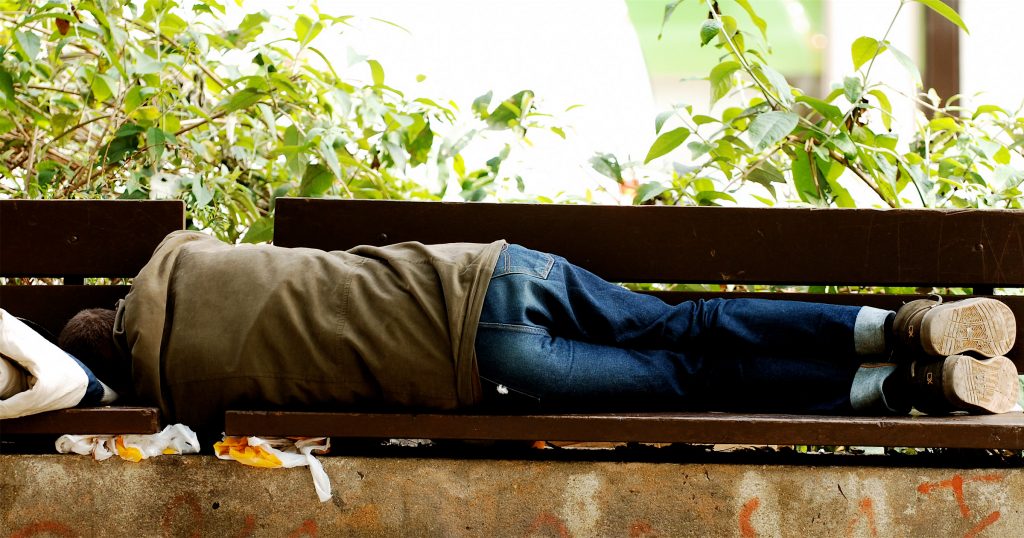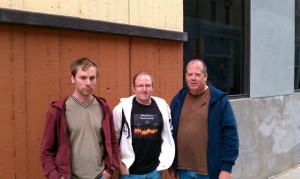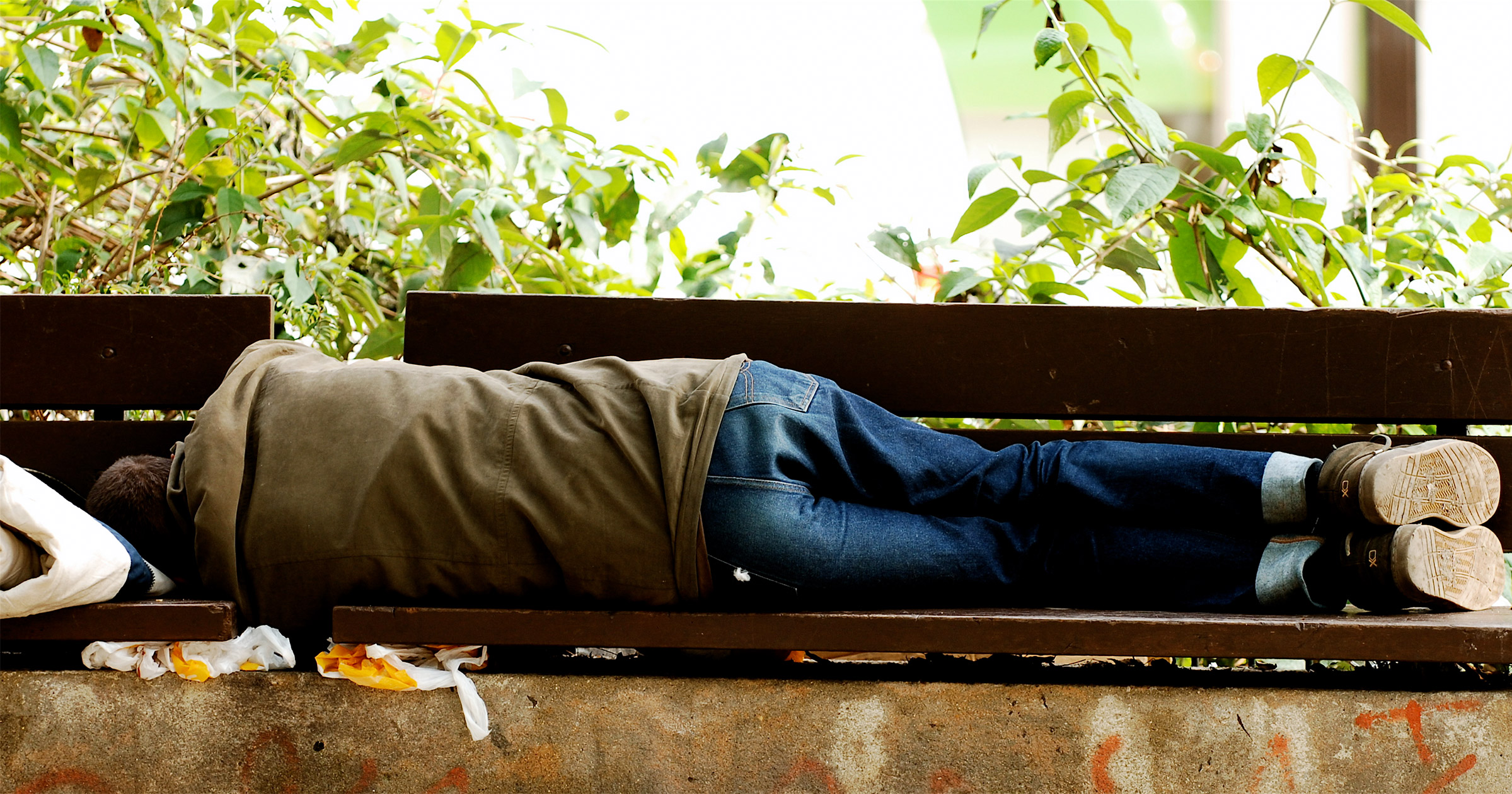One Night in San Francisco: Affirmation’s Two Senior Officers Homeless and on the Street

by Hugo Salinas

George Cole, Robert Moore, and David Melson
This week’s Messenger is back-tracking a few days, to talk about one of the San Francisco conference events with which you might not be familiar. Two of the major issues that Affirmation has focused on during the past year have been the high rates among gay Mormons of suicide and of homelessness. Many of you were present on the opening night of conference for the rally and the candlelight march from City Hall to Harvey Milk Plaza, commemorating the suicides caused by bullying. On Wednesday night, two days earlier, another event took place as part of a longer-term project to draw attention to the plight of the homeless, and particularly of LGBT youth who find themselves thrown out onto the street as a result of having come out to their families.
For twenty hours on the Wednesday night and Thursday prior to the conference, the two of us lived on the streets of San Francisco, homeless. First, a word of caution: Please do not attempt to try this on your own. What we did was planned out and structured to provide for a margin of safety and a high level of supervision. Second, twenty hours is nothing to someone facing a seemingly endless existence on the street. We knew that at 11:00 the next morning that we would have a warm hotel room, a warm meal, and a warm shower waiting for us. All that we could hope for was a taste of what those first few hours might be like for someone newly homeless.
We were given very specific rules. We were to each be put out in a different area of the city, with a map and specific boundaries that were not to be crossed. We were allowed minimal clothing, no processions, no money, no ID. We were given a cheap child’s watch, a pen, and a pocket notebook in which we were to record our journal. We were told that we would be “de-glamored” before going out. We had to be at a certain check-in point every four hours, where we may or may not be contacted, and there would be someone within two blocks of us at all times in case something happened. We could not accept any resources meant for the truly homeless, such as blankets, shelter beds, etc. And we had to find a place to go to the toilet, we had to eat at least one meal, and we had to panhandle for at least one hour.
George: I immediately felt out of place in my own city. I spent the first hour walking around The Haight, looking at this place I’d been so many times before, wondering what it would really be like to live right there, outside those homes. The first few hours were only anxiety, and by the time I was to make my safety check-in, I was ready to quit. I was having a serious mental and emotional disconnect, trying my hardest to understand what I was doing, why I was doing it, and what the scores of people I saw standing and sitting on Haight Street asking for money and food did to just get through another day.
David: I spent my first hour walking the perimeter of the area to which I had been assigned, around City Hall and the Tenderloin. The more I walked, my greater my sense of identity of those around me became. As the night went on, I had some amazing conversations with people – two families with small children who had been on the streets for months, teens thrown out of their homes, people who had been on the streets for years because of some small incident or other that had caused everything else in their life to come down around them. I had helped plan this action, I had a good sense of what was going to happen and what should be expected, and the first several hours held some amazing experiences, but I was getting along pretty well, until about 5:00 a.m., when everything hit me at once, like a brick wall. I knew that my homeless experience was scheduled to end at a certain, set time. For a kid, or even an adult, on the streets, there is no end in sight, just endless days of trying to survive and stay alive. How do you break the cycle? How do get out, or for that matter, keep pushing yourself to stay alive? By the time I moved into position for my next safety check, my emotions were getting the best of me.
George: I didn’t sleep well. I found a filthy, discarded throw rug by a trash can and tried sleeping under it, behind a low wall at the edge of a park. Between the cold and everything that was on my mind, I could only sleep off and on, and never for very long.
David: You spend hours and hours just walking. Food is a challenge. The few public toilet facilities (I found two in a sixteen-square block area) were bad enough that as much as you compromise for food, you don’t use the public toilets. I found that concrete is more comfortable for sleeping than grass, but few people sleep more than a couple hours at a time. An older gentleman sleeping a few feet away from me died in his sleep; no one was sure of his name.
Neither of us could possibly learn enough in twenty hours to really understand what life on the street is actually like, but we each learned enough to have some small idea, enough to compel us each to use a part of our lives to try to do something about it. Neither of us will ever again be able to look through a homeless person as if he or she were invisible; we will never see a person curled up in a doorway late at night or early in the morning and not have a flashback to the night that that was us.
We will be sharing a great deal more about our experiences in the December issue of Affinity, along with quotes from our journals and the commentary of the people supervising us, each of whom had been homeless –for real– at one point in their own lives; their reactions may surprise you.
A month from today is Thanksgiving, two months from today is Christmas. “Because I have been given much, I too must give.”
